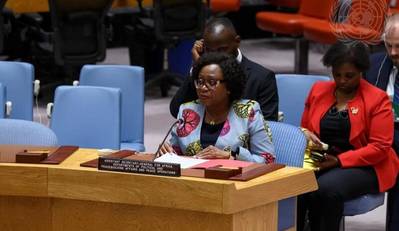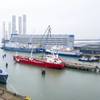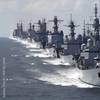Concerns Over Anti-Piracy Efforts Raised at UN Security Council
While piracy in the Gulf of Guinea has been declining since 2021, concerns have been raised about staffing, equipment and finance needed to continue anti-piracy efforts in the region.
There are several challenges holding back the full operationalization of the Yaoundé Architecture, said Martha Ama Akyaa Pobee, Assistant Secretary-General for Africa, Department of Political and Peacebuilding Affairs - Department of Peace Operations at the United Nations, while speaking to the United Nations Security Council meeting on June 22. There is insufficient staffing, a lack of appropriate equipment and logistical support and a lack of predictable and sustainable financing.
The Yaoundé Architecture was established following the signing of the Yaoundé Code of Conduct in 2013 by the leaders of the Economic Community of West African States (ECOWAS), the Economic Community of Central African States (ECCAS) and the Gulf of Guinea Commission (GGC). Its aim is to develop a common regional strategy for preventing and prosecuting illicit activities in the waters of the Gulf of Guinea.
The Architecture comprises the Interregional Coordination Centre, the coordination and information-sharing structure which connects the Regional Maritime Security Centre for Central Africa and the Regional Maritime Security Centre for West Africa. The coastal space is divided into five operational maritime zones where activities are coordinated by five Multinational Maritime Coordination Centres. At the national level, Maritime Operational Centres coordinate maritime police and navies.
“We welcome the steady progress made by the Gulf of Guinea states and sub-regional organizations, notably ECCAS, ECOWAS and the GGC, with the active support of international partners,” said Pobee. “Specifically, four out of the five Multinational Maritime Coordination Centers have been successfully activated.”
These efforts have significantly increased maritime security cooperation in the Gulf of Guinea, she says. They have resulted in enhanced information sharing and facilitated the efficient use of limited naval assets.
“Rapidly addressing the challenges that hamper the full operationalization of the Yaoundé architecture is critical to maintaining current gains as piracy incidents continue to threaten the safety of maritime traffic in the region,” says Pobee. Recent figures already suggest that incidents are steadily shifting from the waters of ECOWAS towards the ECCAS maritime domain. She therefore called on ECCAS, ECOWAS, the GGC act to address her priorities: the criminalization of acts of piracy, addressing the root causes and enhanced coordination.
Also briefing the Council, Gilberto Da Piedade Verissimo, President of ECCAS, said the Gulf of Guinea region of Central Africa face many challenges linked to security and illegal and unregulated fishing. The downward trend in armed robbery at sea can be attributed to states that are now equipped with improved international vessels, a greater international presence in the area and a boost in the sharing of information.
Omar Alieu Touray, President of ECOWAS, suggested the idea of transforming the Yaoundé Code of Conduct into a legally binding framework, which would further strengthen its effectiveness.
Jose Mba Abeso, Executive Secretary of the GGC, told the Council that piracy remains a persistent challenge in the Gulf of Guinea. While acknowledging the efficacy of the Yaoundé Architecture, he expressed concern that some countries have been too slow in adopting its Code of Conduct into their national legislation. “The countries of the Gulf of Guinea region should be encouraged to ratify the Code and fully implement its provisions,” he said.














